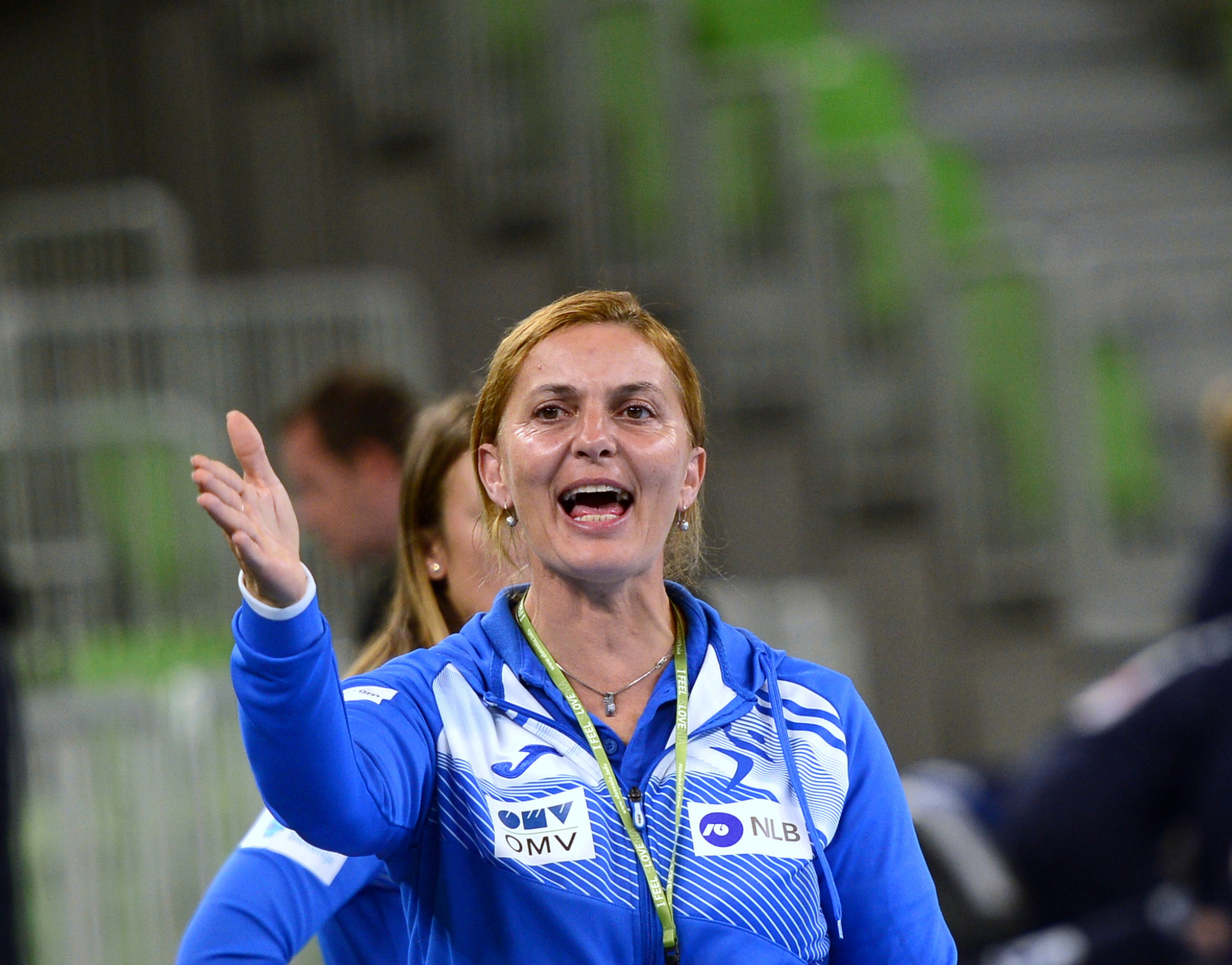However, Mijatovic remained in the sport in a different segment: the media. She became a commentator for a TV station, giving her new opportunities and making her learn new things while staying close to handball.
“I became a commentator on TV for Krim’s matches in the EHF Champions League. That was how I stayed in touch with handball. It is a job that was something completely new for me, but I have great colleagues who are teaching me. Sometimes, I still feel like a player and have a pure reaction to things happening on the court, not thinking that I am on TV.”
Things changed again in September 2021 when Dragan Adzic took over the national team. With a clear goal of preparing the team for the EHF EURO 2022 on the home ground, the Montenegrin coach called Mijatovic and asked her to join him.
“Maybe I would still be on pause if there were no call from Dragan Adzic. Having the EHF EURO at our home court is something special. Some may say the team is not strong enough. However, handball taught us there are always underdogs writing history, and I always believe in success. And it is not only about this competition, but also about development for the future.''
After six years away, Mijatovic had returned to coaching.
“I was motivated to be part of the EHF EURO we are hosting, having a chance to do something on your home court. Playing at home, I remember when playing the finals with Krim, those matches can give you additional energy and confidence you even didn't know you had.”
As an assistant coach, she has a very clear role in the team, sharing a similar vision of handball with head coach Adzic. Mijatovic's biggest wish is to help the players reach their maximum.
“I wanted to be part of it and try to transfer my experiences to the players. To tell them I know how they feel, as I was in the same situation they are in now. Communication is the key. With communication, you can find a solution to a problem you ran into. If you don’t have a true team, a team spirit, it is hard to succeed,” Mijatovic says.
“We also have to look towards the future and find the key players and future stars for the national team. I am happy that Adzic and I have a similar idea about handball, and he gave me support, especially regarding some defensive tactics.”




 Having the EHF EURO at our home court is something special. Some may say the team is not strong enough. However, handball taught us there are always underdogs writing history, and I always believe in success. And it is not only about this competition, but also about development for the future.
Having the EHF EURO at our home court is something special. Some may say the team is not strong enough. However, handball taught us there are always underdogs writing history, and I always believe in success. And it is not only about this competition, but also about development for the future.








